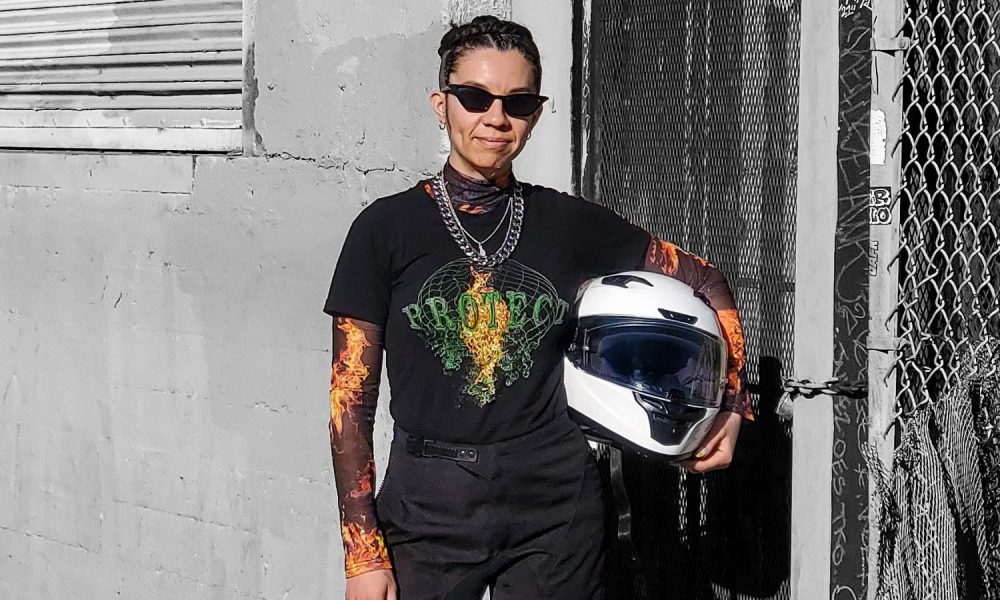

Today we’d like to introduce you to Jacqueline Carrillo.
Hi Jacqueline, it’s an honor to have you on the platform. Thanks for taking the time to share your story with us – to start, maybe you can share some of your backstories with our readers.
I grew up in Texas watching my abuelita sew clothes for my cousins and me. She was a dressmaking beast in her day. As teenagers in the 1960s & 70s, my mom and tías were part of the debutante circuit in San Antonio, something that required an obscene amount of formal wear. Out of necessity for providing fine clothing they could not otherwise afford, my grandmother taught herself how to drape, make sewing patterns, and sew. I got the fashion bug from her, no doubt.
After high school, I was on a mission to become a designer and eventually found myself working in the fashion industry after earning my BFA from Parsons School of Design in New York City. During my time in the fashion industry, I was witness to (as well as a victim myself) numerous labor code violations. Working 7 days a week, for months at a time, no overtime pay. Bounced paychecks. No health benefits. Often working without lunch breaks. Being on-call 24/7 to my job at the time.
Of course, part of this was my fault for not enforcing better boundaries with work, but because of the extreme competition within the industry, I felt I had no choice but to suck it up and pay my dues, not fully realizing I was enabling a horrible practice.
The fashion industry is infamous for its historically poor treatment of its labor force, and thanks to documentaries like The True Cost (2015), people outside of the industry are starting to understand the full impact of the fashion industry not only on the people working within it but the harmful effects it is having on the planet.
I saw a way to potentially make the industry better by creating an eco-friendly unisex streetwear brand, PLANETARY ASYLUM, that is produced here in the United States, with the bulk of the production here in DTLA.
In terms of my lofty, long-term plans, the brand for me is just the beginning. It has been a dream of mine to create my own vertically integrated factory where I can produce my own designs as well as offer design/ production services to other local brands that prioritize ethical labor and sustainable fashion. I also hope to blend this dream with my background as a fashion educator in some way by evolving to offer training programs, like what Kathleen Fasanella does with her Fashion Incubator bootcamps in Albuquerque, New Mexico.
It is hard to ignore the enormous amount of immigrant labor the fashion industry relies upon to create the clothing we wear every day. It is also hard to ignore the way immigrants are treated in this country, especially those from Latin America and Asia, two large and diverse groups I have encountered while working in the fashion industry and two groups I am hoping to help at least in the tiny ways a small, slow-fashion brand like mine can.
Alright, so let’s dig a little deeper into the story – has it been an easy path overall, and if not, what were the challenges you’ve had to overcome?
Nothing I do is easy, haha!
Launching my own brand has been no exception, and launching a brand that uses domestically-produced, eco-friendly products has added another layer of struggles because my raw materials and blanks can be double or triple the cost of what imported goods cost.
As you might imagine, this has a big impact on my bottom line. It is challenging to compete with other brands producing similar things who can offer their products at lower prices to customers who may not know or have the luxury of caring about fashion’s effect on the garment worker or the environment.
And who can blame them? Many customers who are feeling the effects of inflation and perhaps living with the financial uncertainty of the pandemic may be less motivated to care about where and how their apparel is produced and under what conditions.
Fast fashion has lulled the masses into believing that cheap garments can be produced ethically with no negative environmental effects. Those of us that know better, *know* better.
I am not all doom and gloom though! I am hopeful the growing eco-friendly apparel movement will prevail. I am also hopeful that the premium cost to produce goods sustainably and ethically will eventually flatten as more brands adopt conscious practices.
The customer can expedite this shift by demanding responsible production, environmentally-friendly goods, and ethical labor from their favorite brands. The customer holds all of the power here and can opt to shop less and support brands that have people + planet as their focus.
In the short term, I am working on a collection that will utilize deadstock – fabric leftovers from larger brands’ production that would allow me to offer more competitive pricing and more unique offerings. What makes deadstock appealing to an eco-friendly brand like PLANETARY ASYLUM is that these fabrics would otherwise be sent to a landfill (often in developing nations) or incinerated – neither is a good option for anyone. By using what is already available in my immediate locale, I can maintain a sustainable edge and offer unique pieces with a positive impact.
Nothing makes me more excited than participating in the disruption of the traditional fashion industry. Making the industry more size-inclusive, more diverse, more eco-friendly, and focused on ethical labor is what motivates me through the obstacles.
Appreciate you sharing that. What should we know about PLANETARY ASYLUM?
PLANETARY ASYLUM is just getting started. The brand launched this past September and currently offers eco-friendly printed apparel and accessories that are ethically produced in the US. In the next year, I hope to expand my size offerings to be more size-inclusive. At the moment, I am able to offer sizes XS to 3XL with no price differentiation among sizes, something I am proud of as there are brands out there that charge more for plus sizes.
In addition to the line of eco-friendly printed apparel that I currently offer, one thing that I am developing is a capsule collection of modular clothing where a customer can invest in a couple of garments that can be updated with affordable interchangeable pieces (sleeves, pant legs, etc.) from each subsequent collection.
For so long, I think fashion has been about telling people what to wear or how to wear things, but with PLANETARY ASYLUM, I want my customers to feel like I am giving them options that are worth the investment and adapt to their changing lifestyle while also positively impacting the fashion industry and the planet.
*incoming plug*
You can find PLANETARY ASYLUM originals on my website or IRL at local pop-ups and raves in and around Los Angeles.
How do you define success?
The thing about success is that it looks different for everyone.
Generally speaking, I feel successful in that I have been able to create my life to my specific liking. My struggles are ultimately my choice — a privilege that is not lost on me when there are those who have unfortunate circumstances forced onto them.
Launching my own brand and using the creative skills that I have learned along the way is a luxury I never thought possible for myself. It is hard out there for us creatives, so being able to do the type of work I do, with the “rules” I have imposed on myself to keep production domestic and offerings sustainable, that feels like the ultimate success.
Contact Info:
- Website: www.planetaryasylum.com
- Instagram: https://www.instagram.com/planetaryasylum/
- Facebook: https://www.facebook.com/PLANETARYASYLUM
- Twitter: https://twitter.com/PLANETARYASYLUM
- SoundCloud: https://soundcloud.com/planetaryasylum
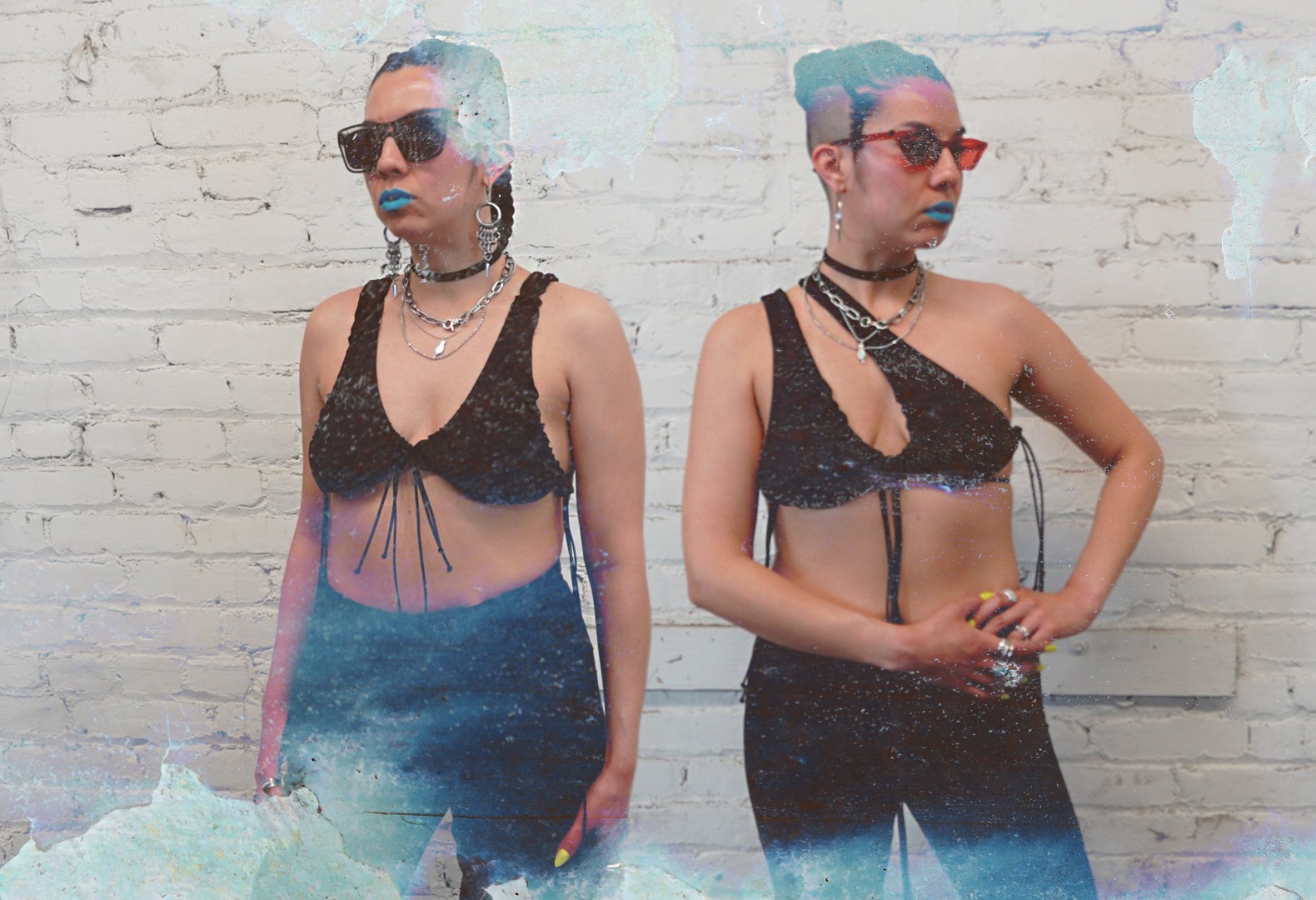
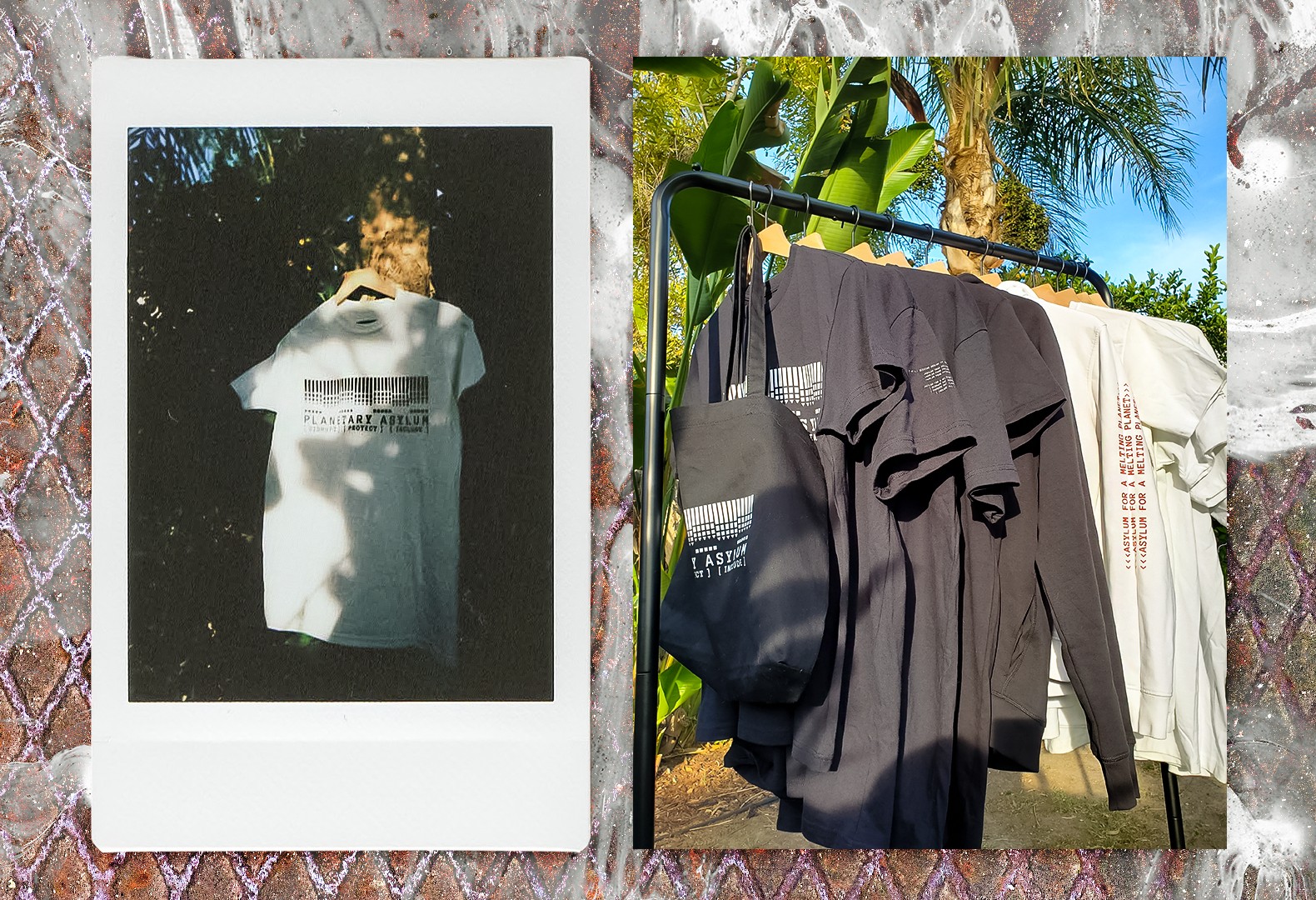
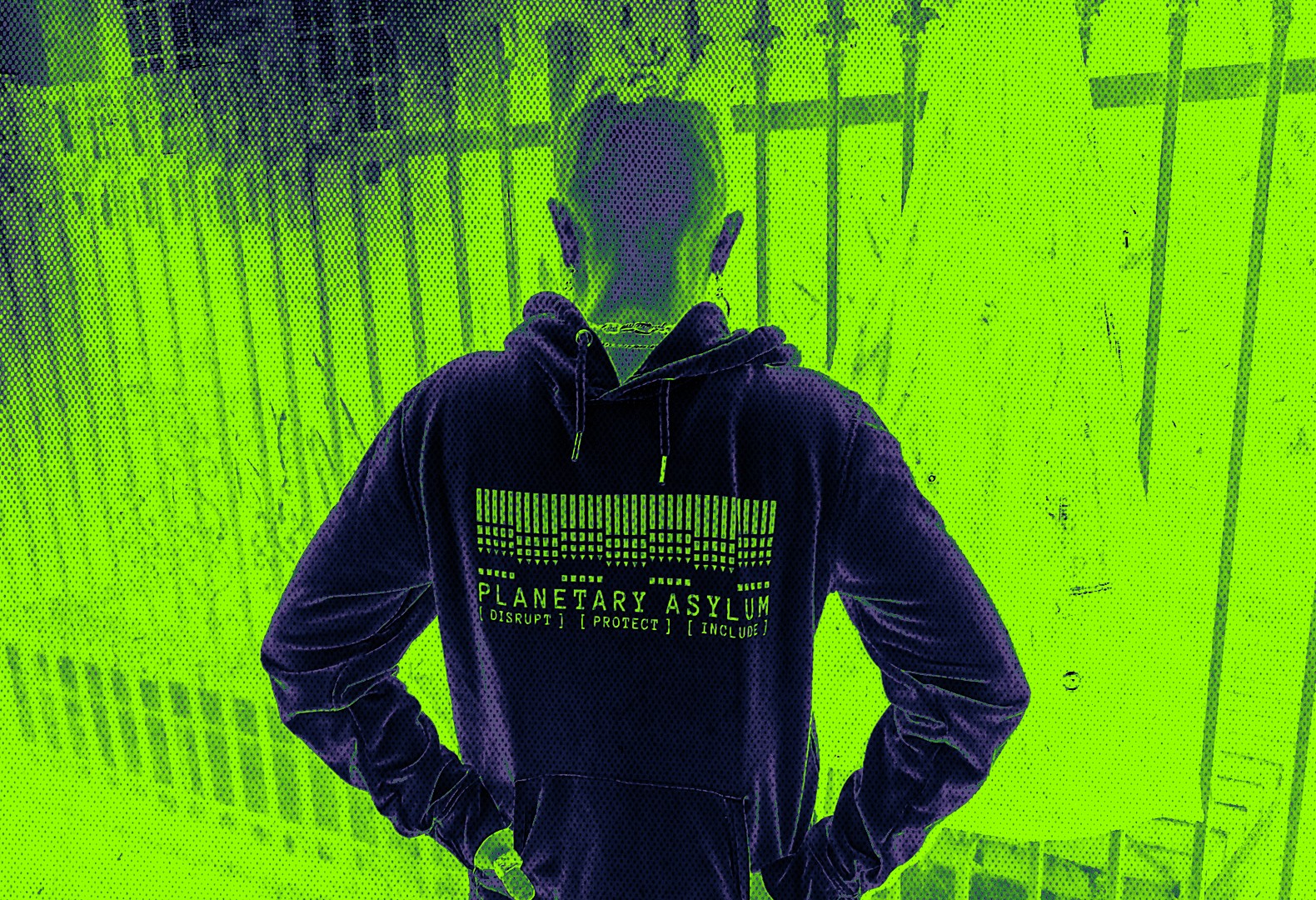
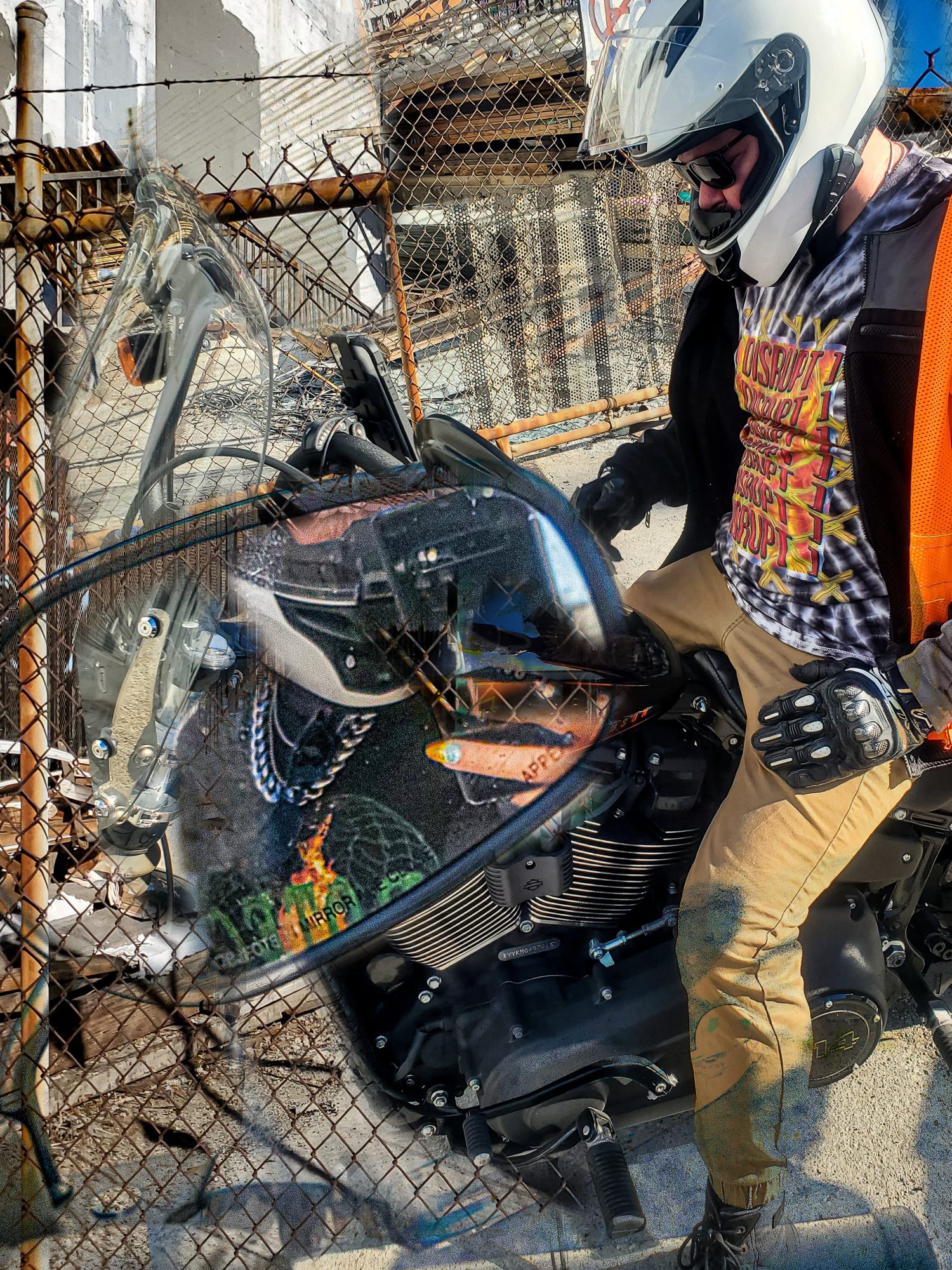
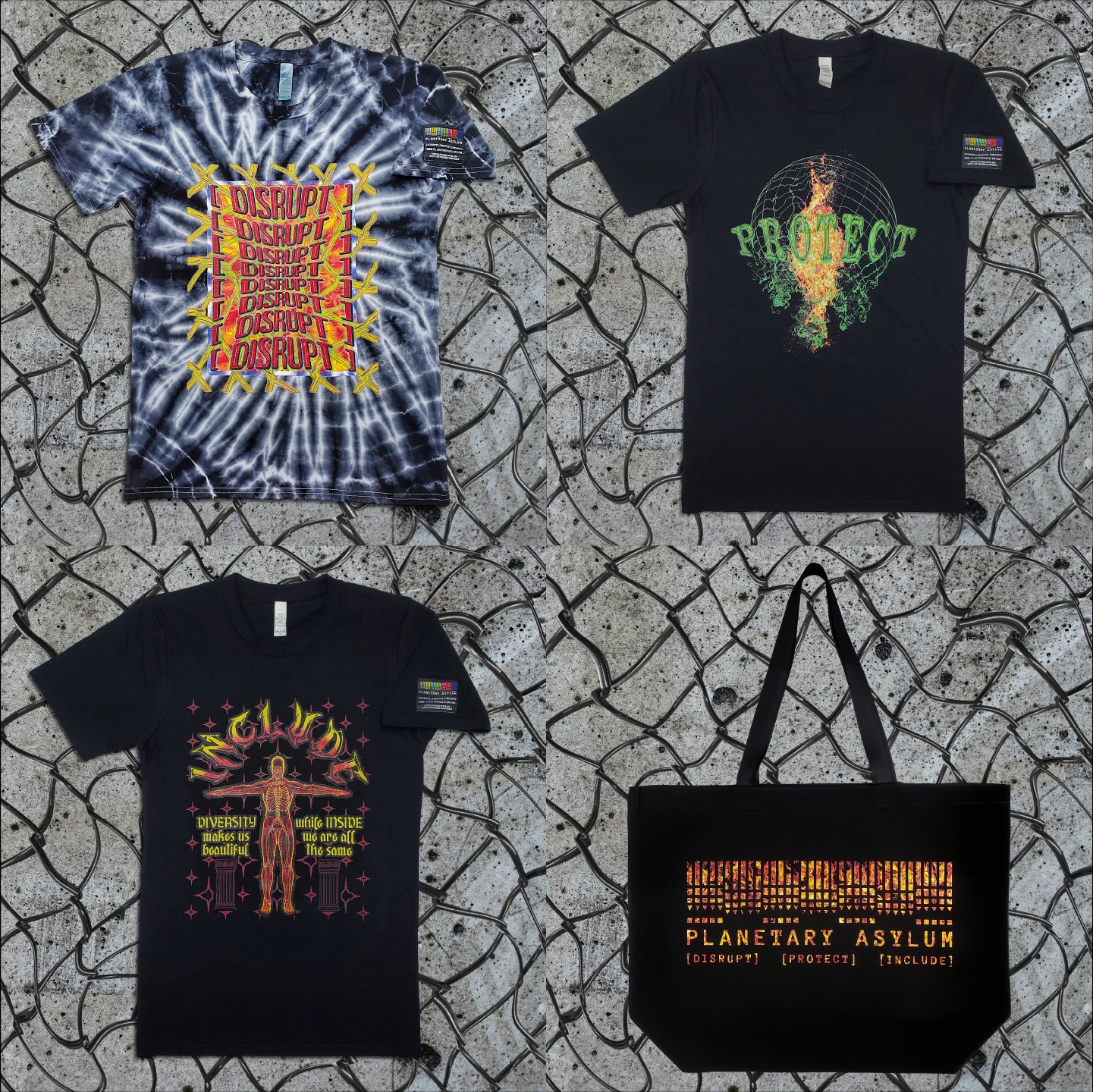
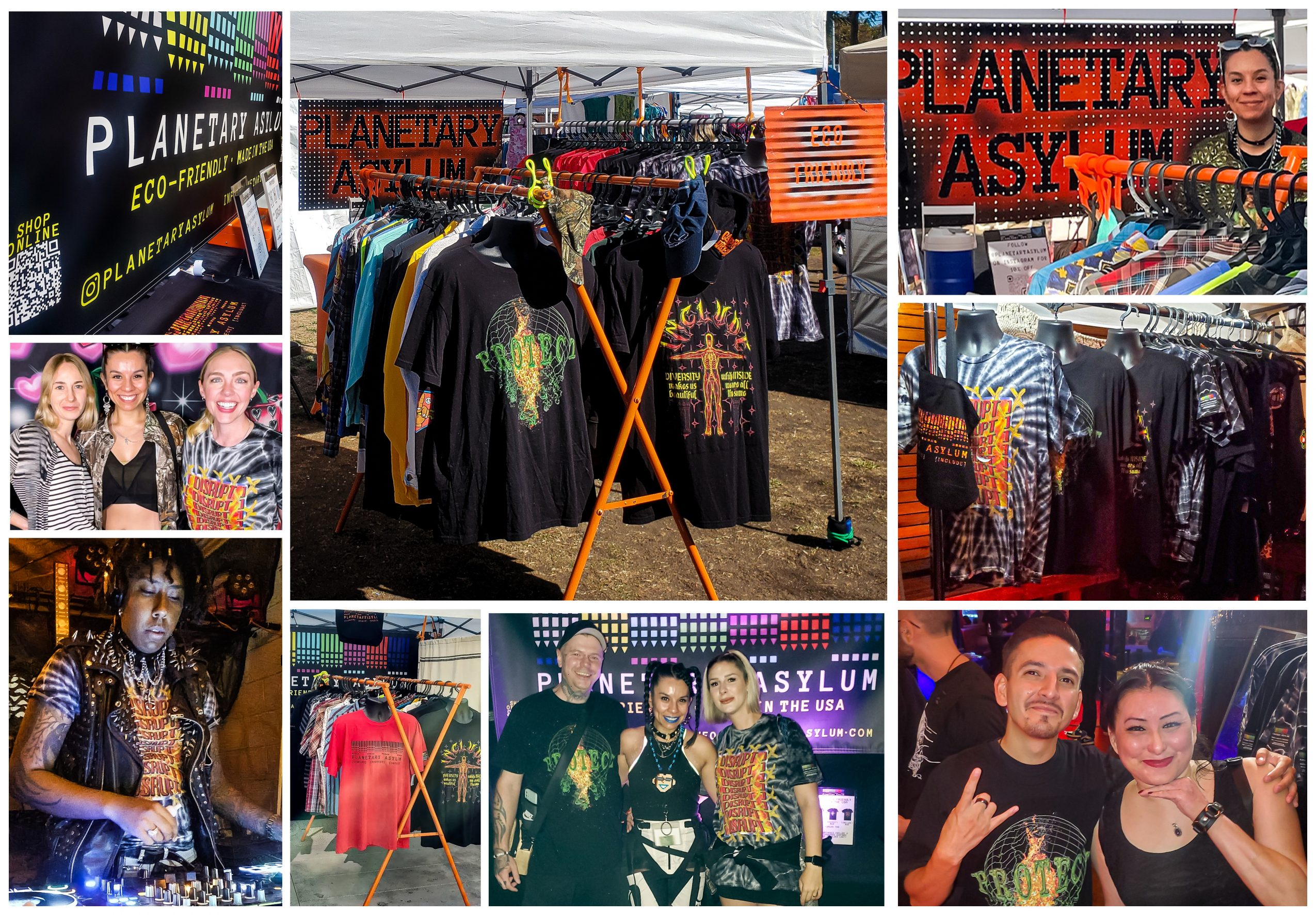
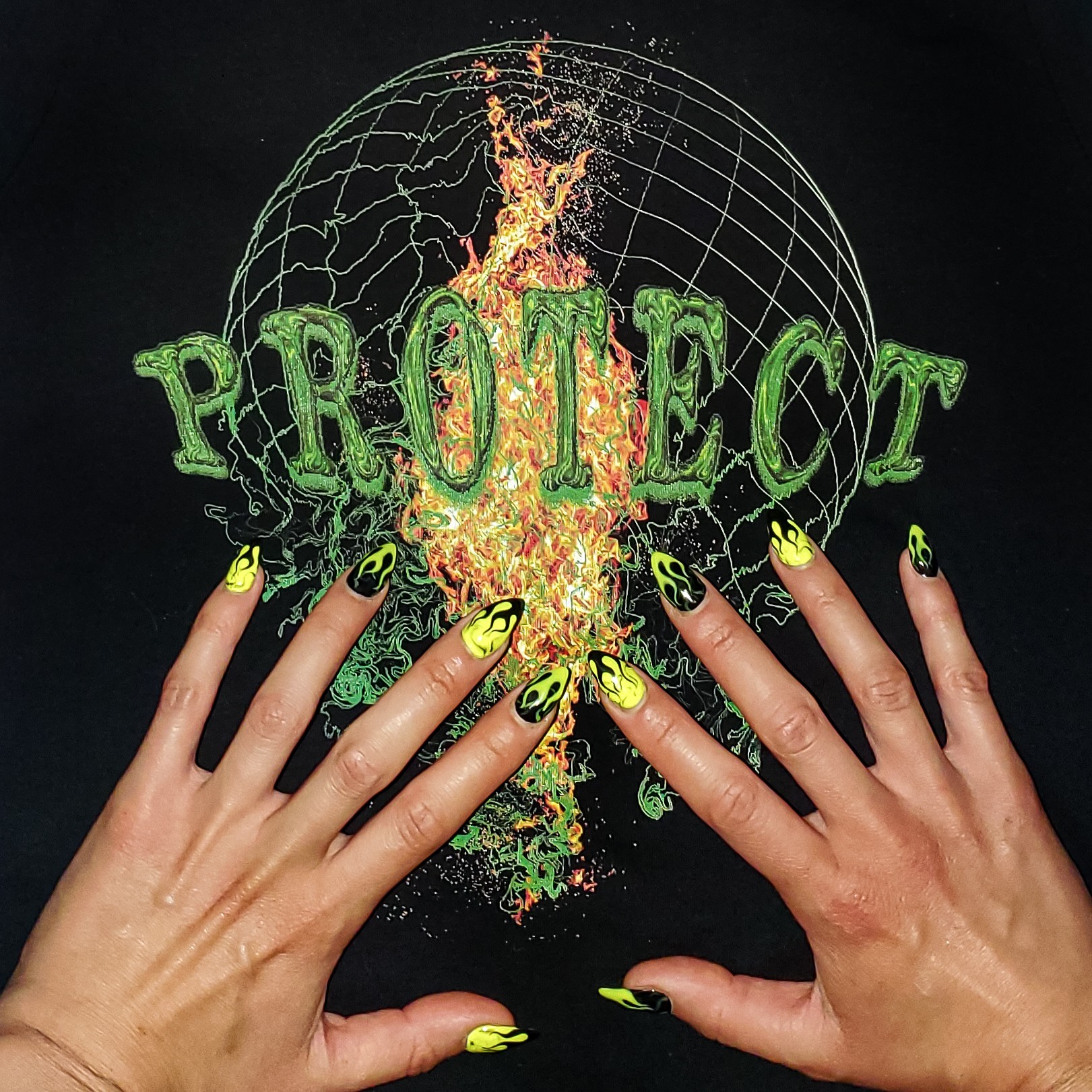
Image Credits
Mathew Kilivris
Deviantbehavior. LA
Jenna Kyle
Hot Girl Market
Technoids.LA














